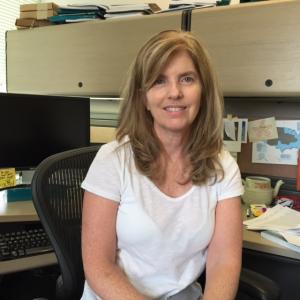Rita Curtis

Voices from the Science Centers
Voices from the Science Centers is an oral history initiative dedicated to documenting the institutional knowledge of fisheries scientists and administrators in the labs of NOAA’s Fisheries Science Centers.
Dr. Rita Curtis is the Chief of NOAA Fisheries Service Office of Science and Technology, Economic and Social Analysis Division. Dr. Curtis first began working with NOAA in 1999 as an economist for the Office of Science and Technology. In 1999, she completed her PhD in Agriculture and Resource Economics from the University of Maryland. Beforehand, Dr. Curtis worked at the Pacific Islands Fishery Science Center in Hawaii studying the longline fleet.
Interview contains discussions of: NOAA Office of Science and Technology, social scientists, economists, FishSET, BLAST, climate change, catch share programs, Hawaii, longline fleet, Sea Grant.
Dr. Rita Curtis discusses her position and duties as an economist and Chief of the Economic and Social Analysis Division of the NOAA Fisheries Service Office of Science and Technology. She discusses projects within the department as well as visualization and decision support tools her department is developing, including FishSET and BLAST.
Please Note: The oral histories in this collection are protected by copyright and have been created for educational, research and personal use as described by the Fair Use Doctrine in the U.S. Copyright law. Please reach out Voices@noaa.gov to let us know how these interviews are being used in your research, project, exhibit, etc. The Voices staff can help provide other useful resources related to your inquiry.
The NOAA mission is to understand and predict changes in climate, weather, oceans, and coasts, to share that knowledge and information with others, and to conserve and manage coastal and marine ecosystems and resources. The Voices Oral History Archives offers public access to a wide range of accounts, including historical materials that are products of their particular times, and may contain offensive language or negative stereotypes.
Voices Oral History Archives does not verify the accuracy of materials submitted to us. The opinions expressed in the interviews are those of the interviewee only. The interviews here have been made available to the public only after the interviewer has confirmed that they have obtained consent.
